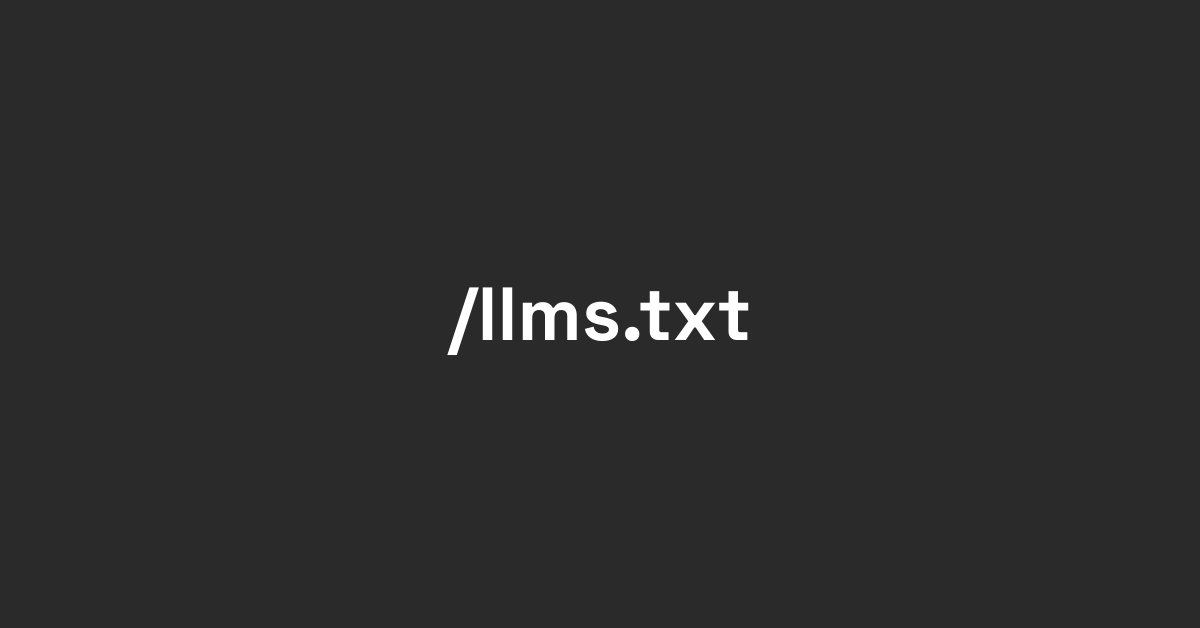As Large Language Models (LLMs) like ChatGPT, Gemini, Claude, and others become integrated into everything from search engines to customer service, a new frontier of digital infrastructure has emerged. Just as robots.txt guides web crawlers, a new file—llms.txt—is being proposed as the standard way for websites to control how AI models access and use their content.
At CTA9, where we focus on the intersection of AI, automation, and digital growth, this new development is more than just a tech curiosity—it’s a potential game-changer for content ownership, digital privacy, and AI ethics.
What is llms.txt?
llms.txt is a plain text file placed at the root of a website (e.g., https://cta9.com/llms.txt), designed to inform AI companies whether they can crawl and use a site’s content to train or fine-tune their LLMs.
The purpose? To provide explicit permission or denial for AI training access—something that’s been a grey area for years.
This initiative mirrors how robots.txt allows webmasters to control search engine indexing. But instead of search engines, llms.txt deals with AI crawlers from companies like OpenAI, Google, Meta, Anthropic, Perplexity, and others.
Why was llms.txt Introduced?
The massive adoption of LLMs has raised a critical question: Who owns the training data?
AI models are trained on large corpora of internet content—websites, forums, documentation, blogs, etc. This has led to concerns about:
-
Copyright violation
-
Loss of control over content usage
-
Unconsented data monetization
-
Potential misinformation or bias stemming from misused content
With llms.txt, site owners can now opt out of AI training altogether or selectively allow specific LLM providers to access their content.
Our Recommended Service: Get Website Indexed in AI
How Does llms.txt Work?
Just like robots.txt, it follows a simple syntax. Here’s an example:
User-Agent: openai
Disallow: /
User-Agent: anthropic
Allow: /
User-Agent: *
Disallow: /
Breakdown:
-
User-Agent: Refers to the LLM crawler (e.g., openai, anthropic, google-llm).
-
Disallow: Denies access to all content on the site.
-
Allow: Grants permission to crawl and use content.
-
* acts as a wildcard for all LLM crawlers not explicitly mentioned.
This format allows fine-grained control over which companies can use your content for AI training.
Current LLM Companies Supporting llms.txt
While the standard is still emerging, many AI companies have started to recognize it, including:
-
OpenAI
-
Anthropic
-
Google DeepMind
-
Meta
-
Perplexity
-
Cohere
Some of them even have public crawler names like OpenAI-User, AnthropicAI, Google-Extended, etc., which may be referenced in the llms.txt file.
How to Add llms.txt to Your Site
-
Create the file
Open any text editor and write your rules as shown above.
-
Upload it to your root directory
Place the file at https://yourdomain.com/llms.txt.
-
Monitor AI crawler behavior
While there’s no absolute guarantee, reputable AI companies are expected to comply with your llms.txt rules.
-
Update regularly
As new LLM players emerge or your policy changes, update your file accordingly.
Why Should You Care as a Website Owner or Marketer?
-
Protect proprietary content: If your blog posts, product descriptions, or whitepapers are being used to train AI—are you okay with it?
-
Control content monetization: Your data may be used to improve commercial AI tools. Shouldn’t you have a say?
-
Ensure brand voice isn’t mimicked: Without controls, AI may learn and replicate your tone, style, or messaging without permission.
-
Future monetization and licensing: As content licensing deals between publishers and AI firms evolve, having a clear opt-in/opt-out record could support your legal or commercial stance.
Use Cases for Different Businesses
-
News Websites: Protect paywalled or exclusive reporting.
-
SaaS Companies: Prevent AI tools from lifting product documentation.
-
Agencies (like CTA9): Ensure your proprietary frameworks or case studies aren’t absorbed by generic AI tools.
-
Creators & Influencers: Maintain control over original storytelling, guides, or brand voice.
What About AI Companies That Ignore llms.txt?
This is where legal and regulatory frameworks will evolve. Currently, it’s a voluntary honor system. However, major lawsuits (like The New York Times vs. OpenAI/Microsoft) are pushing the industry toward more ethical and enforceable standards.
We expect compliance with llms.txt to become mainstream soon, either via tech standards or through legislation.
Final Thoughts
The future of digital content is intertwined with AI—and now, more than ever, website owners need a seat at the table. llms.txt is a step in the right direction.
At CTA9, we encourage all our clients and partners to implement llms.txt today. It’s a small move that could have a major impact on content governance and AI transparency.
Also read: What "llms.txt" Could Mean for the Future of AI?
Want Help Implementing llms.txt?
Whether you’re running a small blog or managing an enterprise-level site, our team at CTA9 can help you implement AI governance standards like llms.txt and beyond. Contact us to get started.



